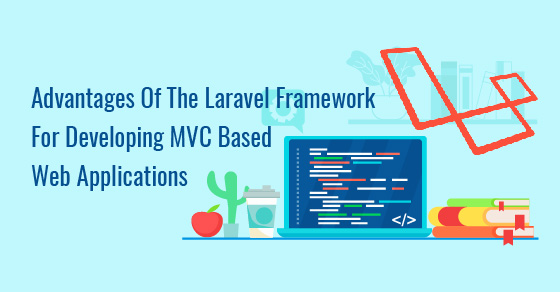"Top Most Reasons For DevOps Failures"
"Developing A Payment App? Here Are Some Of The Key Points You Should Consider"

In the quest to make web development smarter, easier and better, Taylor Otwell created Laravel as an alternative to the CodeIgniter framework that typically does not provide features like built-in support for user authentication and authorization. Laravel makes the work enormously simpler by connecting to databases and running queries from a single interface.
Laravel uses the MVC PHP framework and provides developers with a simple and graceful tool kit to create full-featured web applications. MVC pattern has lately being used most often by developers as it is a powerful framework that helps improve the development process of websites, web services and interactive web applications. It attempts to ease the creation of web projects by simplifying some of the majorly used tasks, like authentication, sessions, caching and routing.
In easing the development it ensures that none of the application’s functionality is reduced or sacrificed in any manner. And so Laravel aims to combine the most useful features from other web development languages like Ruby on Rails, ASP.NET MVC, and Sinatra and combines them to provide better integration of the resources. Thus, making it simpler and easier for a developer to create their web pages or applications in a simple and effective manner.
The Model-View-Controller (MVC) framework that Laravel uses is basically an architectural pattern that breaks up an application into three logical components: model, view and controller, as the name suggests. These components handle specific development aspects of an application to make Laravel accessible, powerful and also provide tools required to run and maintain large, robust applications.
Laravel with the MVC framework stands as a control container with an expressive migration system that tightly integrates unit testing support and provides the tools to build an application. Though the parent company highly recommends that one should use the Homestead as your local Laravel development environment other configurations are effective if you keep in mind a few configuration requirements.
You might want to switch to Laravel for your next project as:
Laravel is the next-gen and most logical tool available in the market as of date to create your next big project. We hope you like it too.